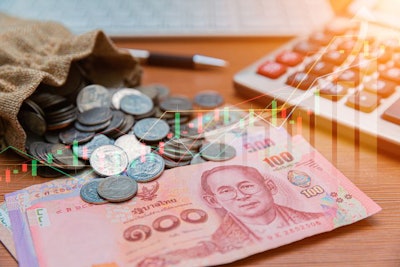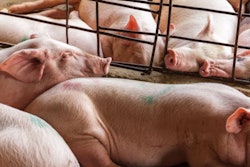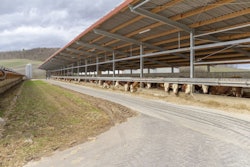
Thai leaders looking for ways to ease the pressures of rising cost of living
Some at the highest level of government in Thailand support a tax cut on animal feeds as one measure to help curtail the spiraling cost of living. Other measures already announced are a ban on live pig exports, and a tariff waiver on imported feed ingredients. Limited domestic supplies have been blamed for a recent sharp rise in pork prices.
Earlier this week, a cabinet meeting of the government of Thailand approved funding to ease the pressure of the rising cost of living on consumers.
Total sum approved was THB1.48 billion (US$45 million), reports Bangkok Post. Among the relief measures to be funded for a period of three months are 3,000 distribution centers nationwide. They will offer a wide range of essential goods, including farm products, chicken and eggs.
According to one spokesperson, this project aims to ease the plight of people affected by the economic impact of the coronavirus (COVID-19) pandemic and sharply rising prices.
Pig meat shortages reported
Within a few weeks, pork prices in Thailand have jumped from THB150 per kilo to as high as THB240, according to the same report.
Recent cases of African swine fever (ASF) in the country were identified as contributing to the rise in prices.
However, the deputy agriculture minister said that domestic pork production appears to be adequate. Of the 19 million pigs raised in the country, 18 million are consumed in Thailand, and one million are exported, he said.
At the cabinet meeting, Prime Minister Prayut Chan-o-cha stated that the country’s first ASF cases occurred in 2018. Since then, the infection has only spread occasionally, and in some parts of the country, he said.
Tax cut to mitigate rising feed costs?
The national industry organization — Swine Raisers Association of Thailand — maintains that pork is in short supply.
Another possible reason for the rising pork price is higher production costs. It has been reported that feed costs have increased sharply from THB78 to THB90 per kilo.
Last week, Bangkok Post reported that the finance ministry favored reducing the tax on animal feeds in Thailand as a means to control food price escalation.
According to the deputy prime minister, the government will consider reducing the tax on animal feeds. However, this would only be approved if the move does not add to the financial burden on the government.
Government announces measures to restore pork supplies
In a move designed to improve domestic pork supplies, Thai pig exports are suspended for a period of three months. According to Nation of Thailand, the temporary ban applies to live pigs, and will end on April 5.
This is just one of three measures that will restore the pork supply and bring down prices, according to a government spokesperson.
In addition, tariffs on imported animal feeds will be waived, and a new loan will be offered to new pig farmers via the the Bank for Agriculture and Agricultural Cooperatives.
Furthermore, the government has undertaken to promote domestic corn production as a means to reduce reliance on imports of feed ingredients.
To improve the health and productivity of Thailand’s pigs, the Department of Livestock Promotion is set to engage with researchers and private partners. Meanwhile, the Agriculture and Cooperatives Ministry will take a long-term view to expanding Thai pig production by attracting new investors in systems following good farm management practices.
In the past month, the national veterinary authority recently officially registered the country’s first reported ASF cases, which date back to November 2021.

















